Abstract
Order checks are important error prevention tools when used in conjunction with practitioner order entry systems. We studied characteristics of order checks generated in a sample of consecutively entered orders during a 4 week period in an electronic medical record at VA Puget Sound. We found that in the 42,641 orders where an order check could potentially be generated, 11% generated at least one order check and many generated more than one order check. The rates at which the ordering practitioner overrode 'Critical drug interaction' and 'Allergy-drug interaction' alerts in this sample were 88% and 69% respectively. This was in part due to the presence of alerts for interactions between systemic and topical medications and for alerts generated during medication renewals. Refinement in order check logic could lead to lower override rates and increase practitioner acceptance and effectiveness of order checks.
Full text
PDF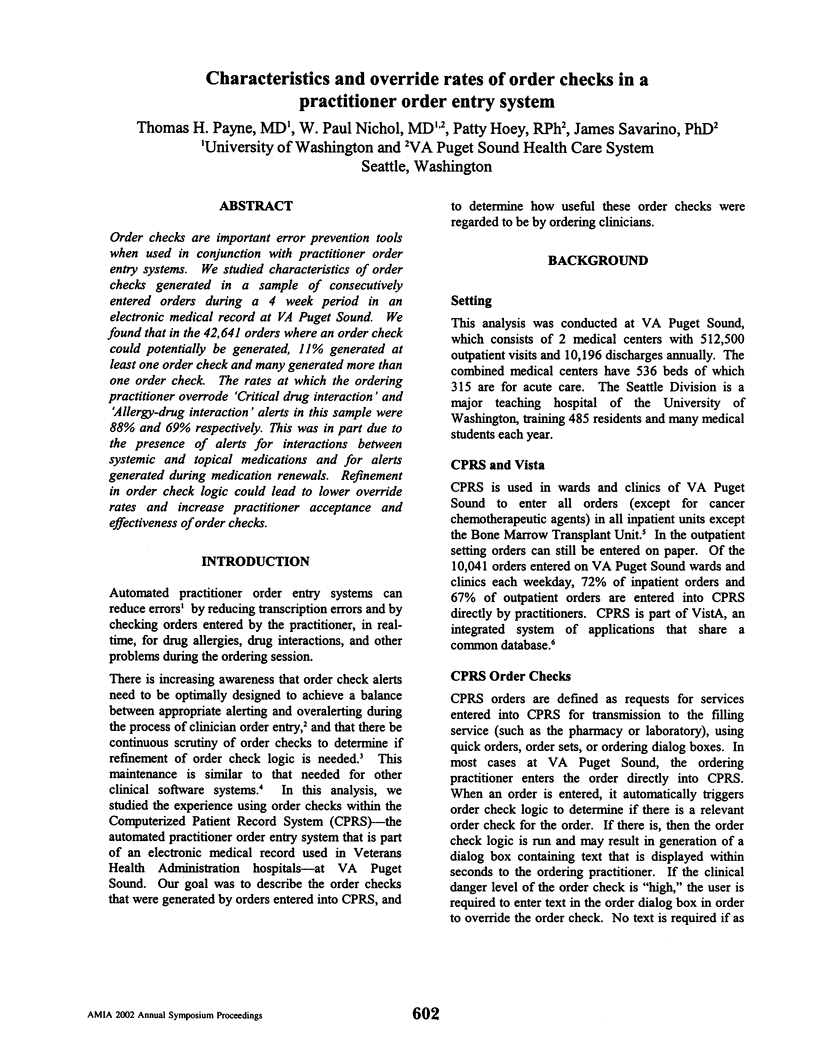
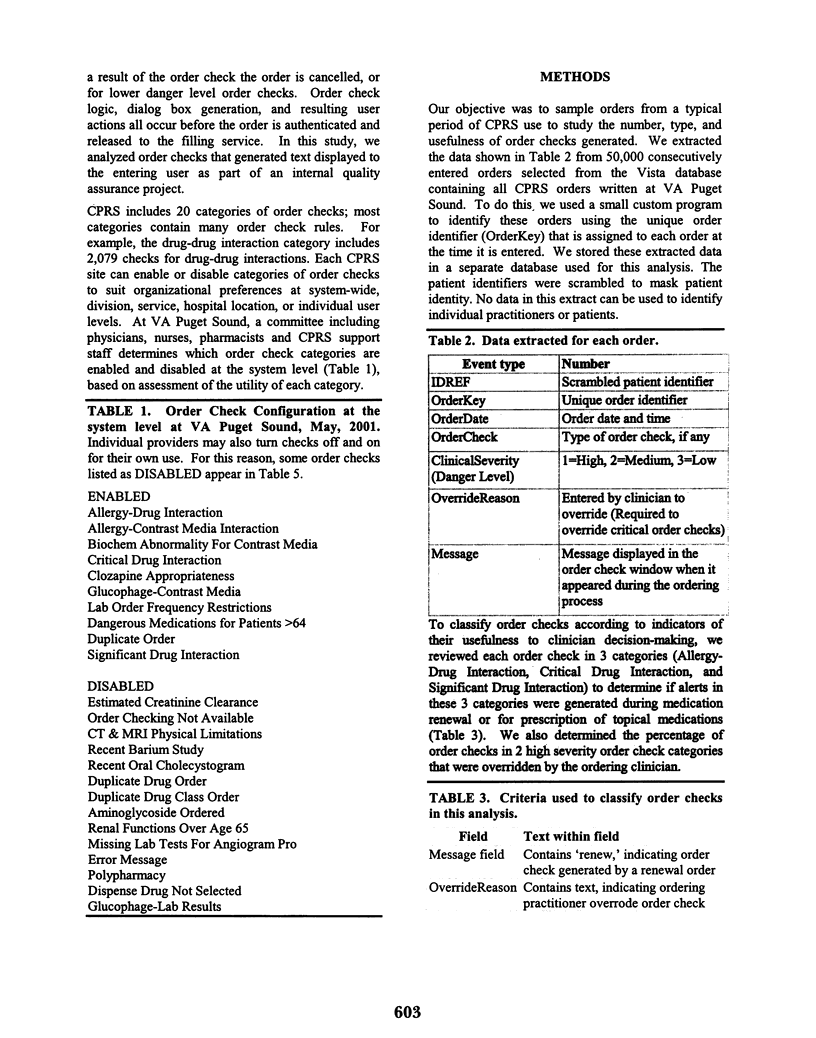
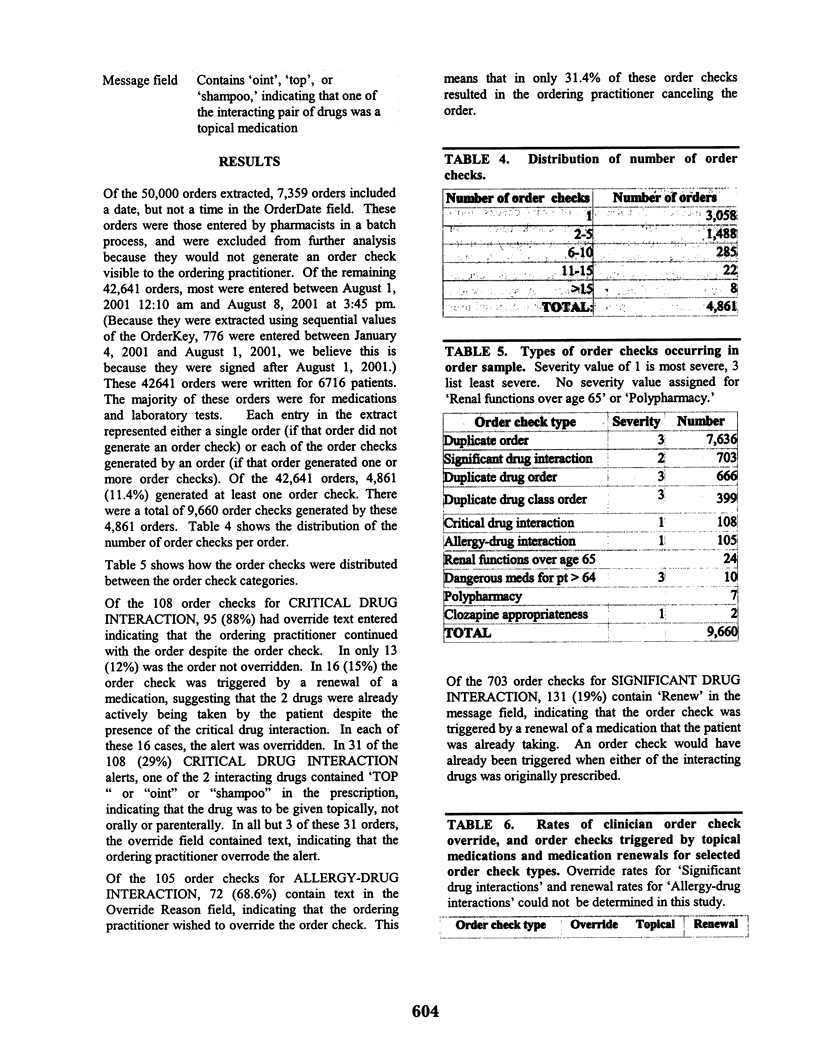
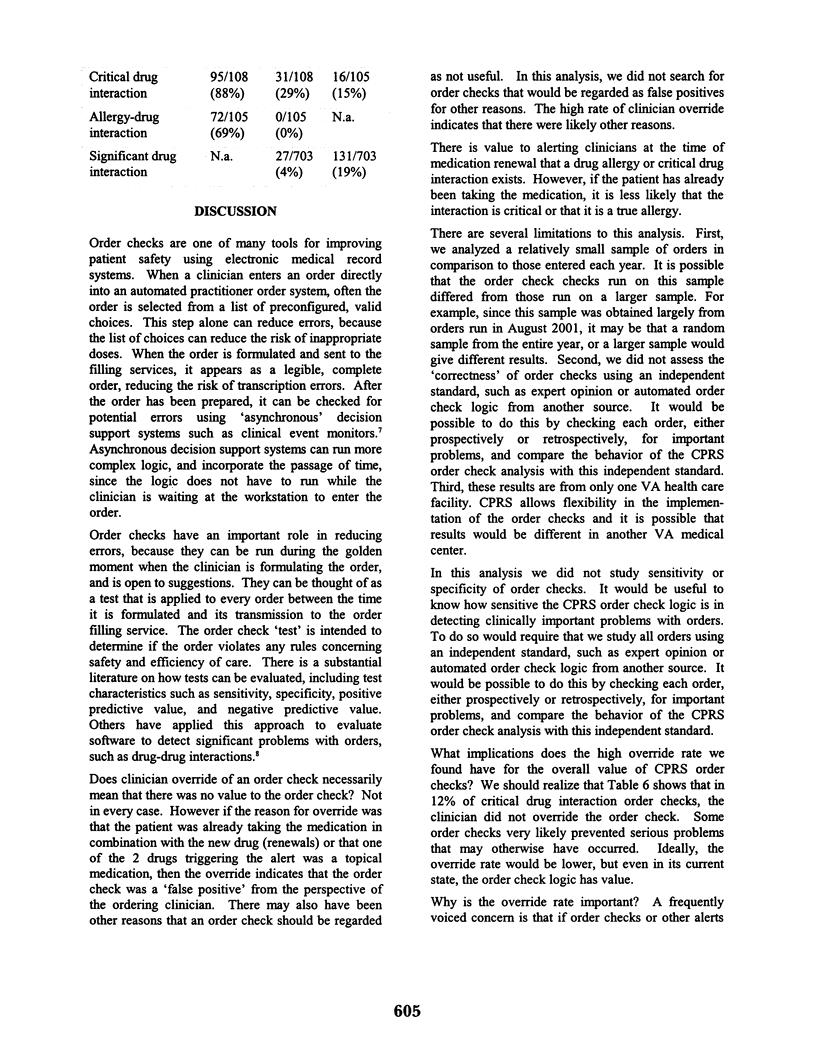
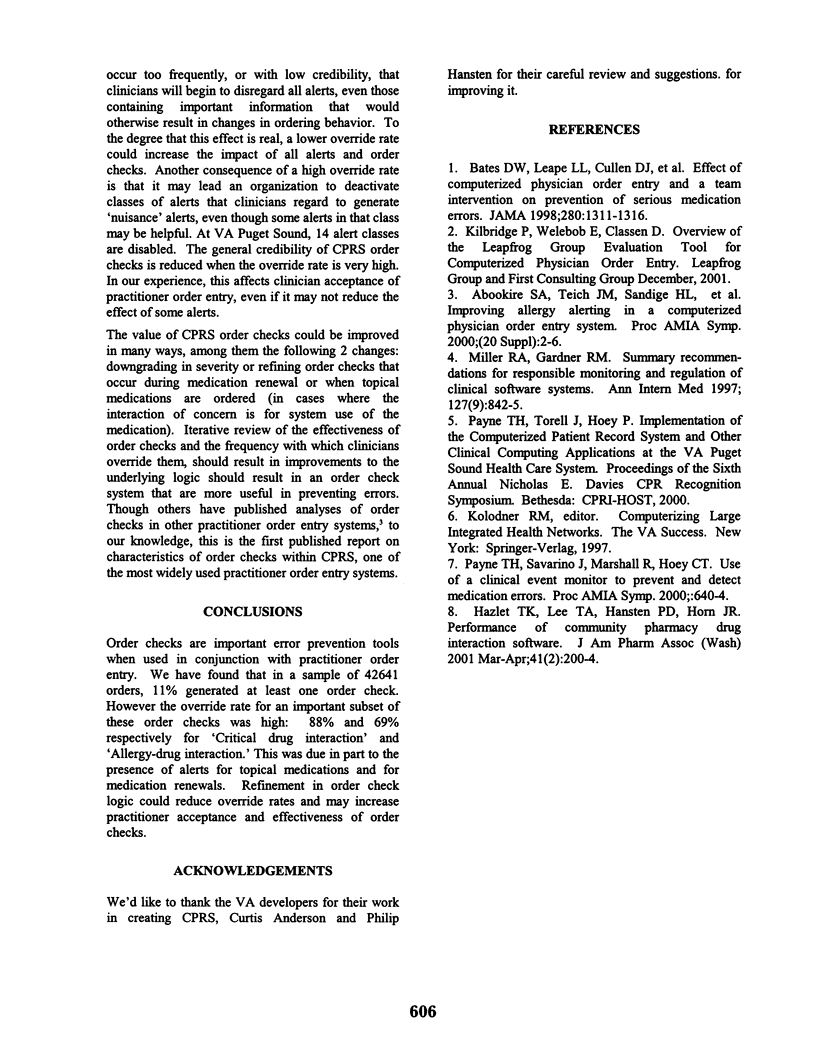
Selected References
These references are in PubMed. This may not be the complete list of references from this article.
- Bates D. W., Leape L. L., Cullen D. J., Laird N., Petersen L. A., Teich J. M., Burdick E., Hickey M., Kleefield S., Shea B. Effect of computerized physician order entry and a team intervention on prevention of serious medication errors. JAMA. 1998 Oct 21;280(15):1311–1316. doi: 10.1001/jama.280.15.1311. [DOI] [PubMed] [Google Scholar]
- Hazlet T. K., Lee T. A., Hansten P. D., Horn J. R. Performance of community pharmacy drug interaction software. J Am Pharm Assoc (Wash) 2001 Mar-Apr;41(2):200–204. doi: 10.1016/s1086-5802(16)31230-x. [DOI] [PubMed] [Google Scholar]
- Miller R. A., Gardner R. M. Summary recommendations for responsible monitoring and regulation of clinical software systems. American Medical Informatics Association, The Computer-based Patient Record Institute, The Medical Library Association, The Association of Academic Health Science Libraries, The American Health Information Management Association, and The American Nurses Association. Ann Intern Med. 1997 Nov 1;127(9):842–845. doi: 10.7326/0003-4819-127-9-199711010-00014. [DOI] [PubMed] [Google Scholar]
- Payne T. H., Savarino J., Marshall R., Hoey C. T. Use of a clinical event monitor to prevent and detect medication errors. Proc AMIA Symp. 2000:640–644. [PMC free article] [PubMed] [Google Scholar]


